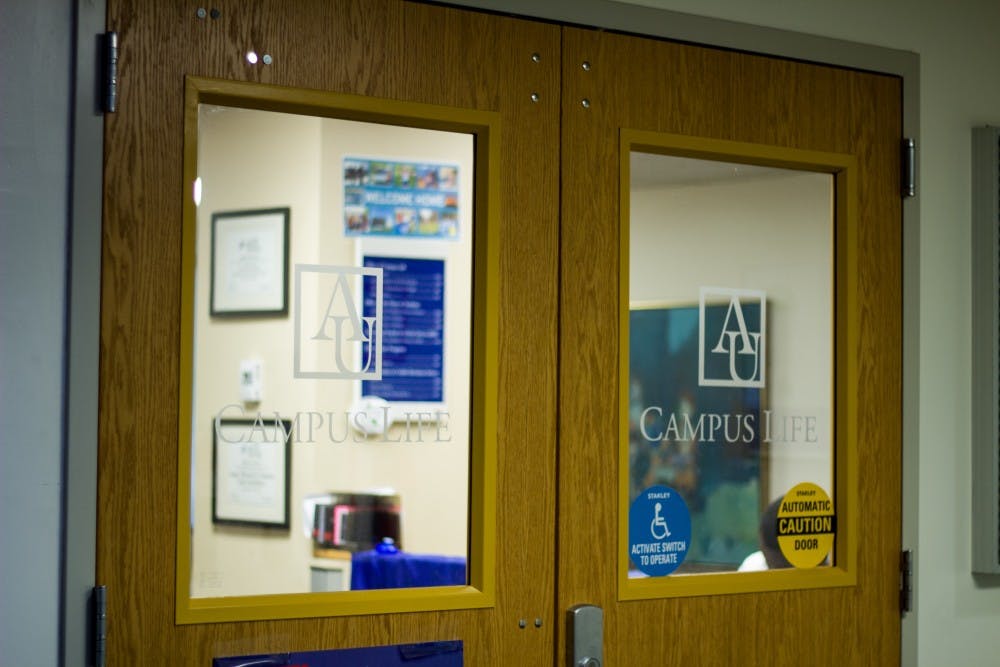This article has been updated with a correction. The University did not quarantine students returning from South Korea for 14 days in Nebraska Hall. The statement was referring to students from China only. No students returning from South Korea returned to campus upon their arrival in the U.S.
As the threat from the coronavirus increases both around the world and in D.C., the University’s cross functional Emergency Response Team says they are exploring proactive ways to handle the situation. Options on the table include online education, a period of suspended in-person classes and self-quarantine or “social distancing,” among smaller adjustments.
David Reitman, the medical director of the Student Health Center, explained that the University is working closely with the Center for Disease Control and the Department of Health as it designs its response. As changes are made, Fanta Aw, the vice president of campus life and inclusive excellence, and Jessica Waters, the dean of undergraduate education, said that main priorities for the response team are maintaining student health, avoiding any education disruption and continuing clear communication with the community about the University’s status.
Once decisions are made by the team, Waters said that implementation is done at the individual level.
“We had a group of 20 students coming back from South Korea,” Waters said. “They're all in different academic programs, have different academic needs, maybe one’s a senior, one’s a freshman, they're taking this course or taking that course … We are working very closely with each and every individual student through their associate dean and their advisor to make sure we understand their individual academic situation.”
Reitman said that 10 students returning from China were initially not told by the government to self-quarantine, but following a press conference from Alex Azar, the secretary of Health and Human Services, three students were moved to Nebraska Hall for two days to reduce interactions with the rest of the campus community. Communication between the CDC and HHS confused the process for two days, he added, but the University worked out the problem with the CDC and the D.C. Department of Heath to clarify the situation and notify the students that they no longer had to self-quarantine.
Depending on their situation, students back from abroad will be conducting independent studies, taking online classes or doing some combination of the two, Aw said.
The Emergency Response Team, which makes the major decisions on the University’s handling of the coronavirus, is made up of six administrators, including Aw, Reitman, Waters, Director of Public Affairs Stacie Burgess, Vice President and Chief Communications Officer Matt Bennett and Assistant Vice President of Risk, Safety and Transportation Dan Nichols.
AU has already taken a series of actions to address the spread of the virus. Study abroad students in China, South Korea and Italy have been recalled to the U.S.after the CDC upgraded the threat level in those countries, and AU announced Thursday night that it was suspending international alternative break programs and the trip to California.
Tess Herdman, a senior in the School of International Service who was studying in Rome until her program was cancelled, said that she’d been told she could continue her classes online, as the Eagle previously reported. She added that the University said she’d be compensated for her flight back, which Aw confirmed.
All decisions by the team are made with student finance in mind, Aw said, which is why the University is offering refunds and reimbursements where possible.
On Thursday, the Department of Education released guidelines on how universities should handle coronavirus, which included greatly increased discretionary freedom for institutions to change policies on distance education, enrollment requirements, federal work study payments and the length of the academic year.
“The Department of Education came up with guidance that… really [advances] what needs to happen at this time,” Aw said. “Our team in financial aid… analyzed that to understand what the implications are, and the big macro level is really that they provided enough flexibility that would allow [the University to quickly implement online classes] that would allow it to become part time if needed… so students are not adversely impacted.”
“Every decision that we've been making when students have been coming back is with financial aid in mind, and making sure that that is really preserved as much as possible because we know that it is really critical for students and their families,” Aw said.
The University is preparing for the possibility of a coronavirus outbreak in Washington D.C., following the announcement that there have been three confirmed cases in Montgomery County, Maryland and one confirmed case in D.C. These plans involve asking faculty to prepare online course content in the possibility that in-person classes may be suspended after spring break.
Georgetown University announced on Wednesday that it had suspended all university-sponsored international travel. The Hatchet, George Washington University’s student newspaper, wrote on Thursday that the university had done the same.
This article will be updated as more information becomes available.





